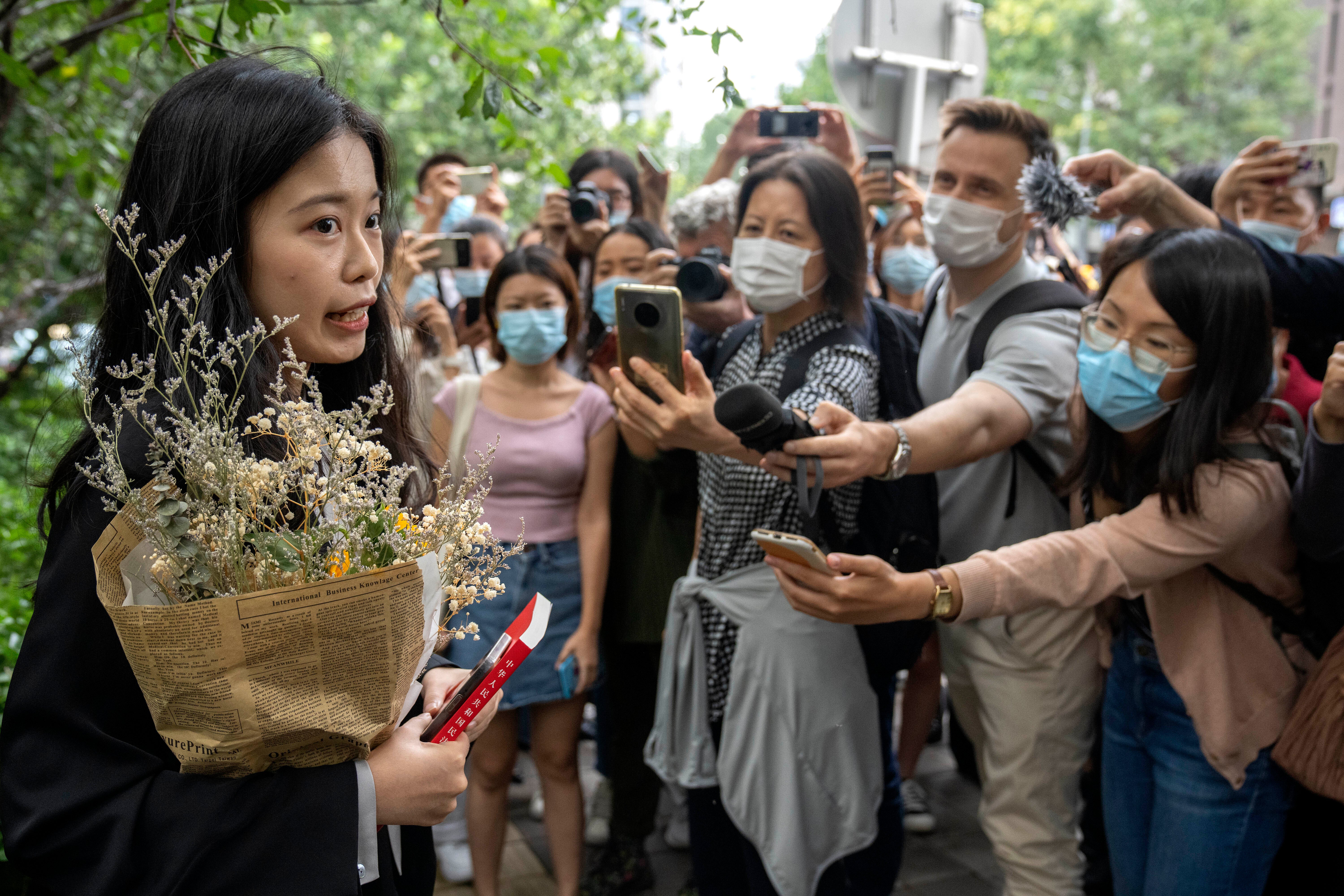Court rules against woman who became face of China’s #MeToo movement in landmark verdict
Zhou Xiaoxuan says she is exhausted by verdict but that her team will file an appeal

Your support helps us to tell the story
From reproductive rights to climate change to Big Tech, The Independent is on the ground when the story is developing. Whether it's investigating the financials of Elon Musk's pro-Trump PAC or producing our latest documentary, 'The A Word', which shines a light on the American women fighting for reproductive rights, we know how important it is to parse out the facts from the messaging.
At such a critical moment in US history, we need reporters on the ground. Your donation allows us to keep sending journalists to speak to both sides of the story.
The Independent is trusted by Americans across the entire political spectrum. And unlike many other quality news outlets, we choose not to lock Americans out of our reporting and analysis with paywalls. We believe quality journalism should be available to everyone, paid for by those who can afford it.
Your support makes all the difference.In a blow to China’s #MeToo movement, a Beijing court on Tuesday ruled against the plaintiff in a landmark sexual harassment case against one of the country’s most famous TV hosts, Zhu Jun.
Mr Zhu was accused of forcibly groping and kissing Zhou Xiaoxuan while she was an intern at state broadcaster CCTV in 2014. Through a series of social media posts in 2018, Ms Zhou levelled allegations of sexual harassment against Mr Zhu. He has denied all the allegations.
Her accusations took Chinese social media by storm, prompting other women to come forward with their own accounts of sexual harassment. Ms Zhou, popularly known by her online name Xianzi, quickly became the face of the country’s #MeToo movement, sparking a nationwide debate.
Ms Zhou filed a lawsuit against Mr Zhu three years ago, seeking a public apology and damages of 50,000 yuan (about £5,600). But the first hearing in the case was held only in December 2020, and that too behind closed doors. The second hearing on Tuesday was also behind closed doors.
The Haidian district court on Tuesday dismissed the case and said the evidence was “insufficient to prove claims that Mr Zhu engaged in sexual harassment”.
Ms Zhou said she was disappointed and exhausted by the verdict but added that her team would file an appeal, according to Reuters. “We will definitely appeal because in this case, we didn’t look at any of the core facts at all, that is all of the surveillance videos,” she said.
The court has been accused of depriving the plaintiff and her lawyers of the opportunity to fully put their case forward.
“I told the court today that this incident happened when I was 21, and now I’m 28,” Ms Zhou told The Guardian. “In the last three years because of this legal case I wasn’t able to do other work. I was very sad and I couldn’t help but cry in court today. I can accept all sorts of outcome, but I just want basic procedural justice.”
Ms Zhou was shoved by antagonistic bystanders earlier on Tuesday when she was on her way to court. One woman reportedly yelled “pandemic safety” while trying to prevent Ms Zhou from speaking, while a man questioned if it was appropriate for her to speak alone.
Authorities in China have tried to clamp down on the #MeToo movement in the conservative society by censoring posts and putting pressure on activists. But a series of sexual assault and rape accusations recently has revived the conversation around the movement.
Chinese-Canadian singer Kris Wu was arrested in Beijing last month on suspicion of rape over accusations made on social media. He has denied the allegations made online.
Earlier this month, a former Alibaba manager was accused of sexually assaulting a female colleague during a business trip. However, a district court in north-eastern Shandong province ruled that the “forcible indecency” committed by the man was not a crime.
Join our commenting forum
Join thought-provoking conversations, follow other Independent readers and see their replies
Comments